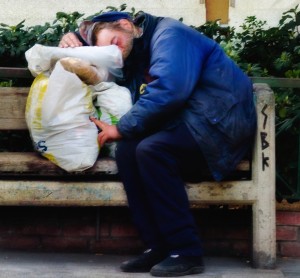by Rachel Shunk
When Chaucer’s bumbling narrator in the House of Fame dreams that he has been snatched up by a Dantean eagle, he supposes he is about to be carried bodily into heaven. “Thou demest of thyself amis,” the eagle assures him, deflating the narrator’s absurd mistake, which is born of fear and desire in equal measures. His error is that he confuses the poetic vision with both death and instant, miraculous fame. The error of the poet is always thus: he thinks his poetry is a matter of life and death rather than a somewhat silly dream, and he imagines that through his poetry he will be known and loved forever, when the opposite is much more likely. Poetry regularly practiced leads in general to a life of unwashed obscurity (Chaucer being the exception rather than the rule).
No matter. He has no choice but to have the vision. “Is this how I am going to die?” wonders the narrator. “Oh, Jove is nowhere about,” assures the eagle. Rather, in recompense for the narrator’s ‘devotion’ he is being granted a visit to the House of Fame, for amusement and for ‘gam.’ The eagle tells him that he has served Cupid long and diligently without reward, “And nevertheless have set your wit—although full little there is of it” to celebrate Love by writing poetry, “And you take pains to praise his art although in love you take no part.” The dream is not at all an act of the poet or a result of his life’s labors, only a kind of superfluous reward for those labors which would otherwise be vain ones. Poetry, then, is a game in which one may accidentally stumble upon something fairly true, though it is unlikely.
We can all, I think, relate to the odd and uncomfortable changes that occur to the normal human being between the ages of twelve and twenty-five. This unfortunate state is often accompanied by an attempt to poet. Youth is that time when all matters appear distorted, out of focus, and lacking in true proportion. A belief that mundane occurrences like meeting a girl or being picked up by a passing eagle are somehow imbued with unearthly, life-shattering significance is the result of the failure to see reality in its proper perspective—this failure is a hallmark of immaturity. This is why most people rightfully regard anyone who falls outside this general age-range attempting to poet with deep suspicion, if not downright aversion. As for the rest, it is the toleration of maturity that allows us to smile and nod and sagely opine that this too shall pass.
But much more insidiously, the narrator conflates two types of assumption. It should be startling to the reader of Chaucer to see biblical prophets Enoch and Elijah casually treated as the same type of character with the same fate as Ganymede (cup-bearer to the gods and boy-toy to Zeus) and Romulus (as blood-thirsty a fratricide as ever graced the heavens). But the narrator is the kind of poet who wishes to achieve fame through his words, and what is it to achieve fame but to be known by as many people as possible for as long as possible? It makes no difference to the narrator that Enoch and Elijah spoke the word of God; the point is that they gained undying fame and a kind of immortality as a result of doing so, or they would not be in the company of Ganymede and Romulus.
To shine in the heavens for all time and be known to all—an intoxicating vision. While the narrator is clearly afraid, his desire also trembles behind the question, “Lo, this was tho (his) fantasye:” is he or is he not on his way to constellation-hood? Why should he think that he, a mere poet, is being carried up into heaven? Merely because he wants it to be true. The desire to be known, not for one’s true self, but for the powerful sway of one’s words, is the distinct province, in fact, of the sociopath. It is a dazzling idea that one might become dazzling, blinding that one might blind. The charm of the outside form, fair, seductive words—thus the poet, and thus the man without conscience. This is the road across the chasm of death indeed, but not the road to heaven.
Look to the Nicomachean Ethics, my friends, look to thy ethics. Although it first appears as you read Aristotle that honor is the highest good, stay the course and see that the highest good by the end of the book actually requires—friendship. For a brief period, the gam of poeting might seem as harmless a pursuit as minesweeper, but ware the gam. Steady yourself—habit is all. Your true friends will cure you if you forget yourself in the dream. The cures of the poet are these two things: time and good friends. Use them both wisely.
